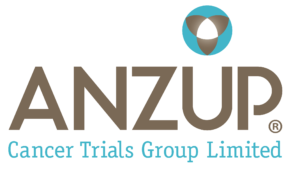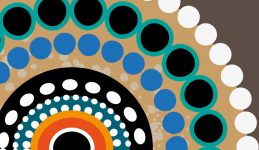
Renal Cell Cancer Subcommittee
ANNUAL
REPORT 2023
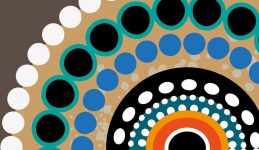

Renal Cell Cancer Subcommittee
ANNUAL
REPORT 2023


Renal Cell Cancer Subcommittee
ANNUAL
REPORT 2023

Renal Cell Cancer Subcommittee: Craig Gedye and David Pook
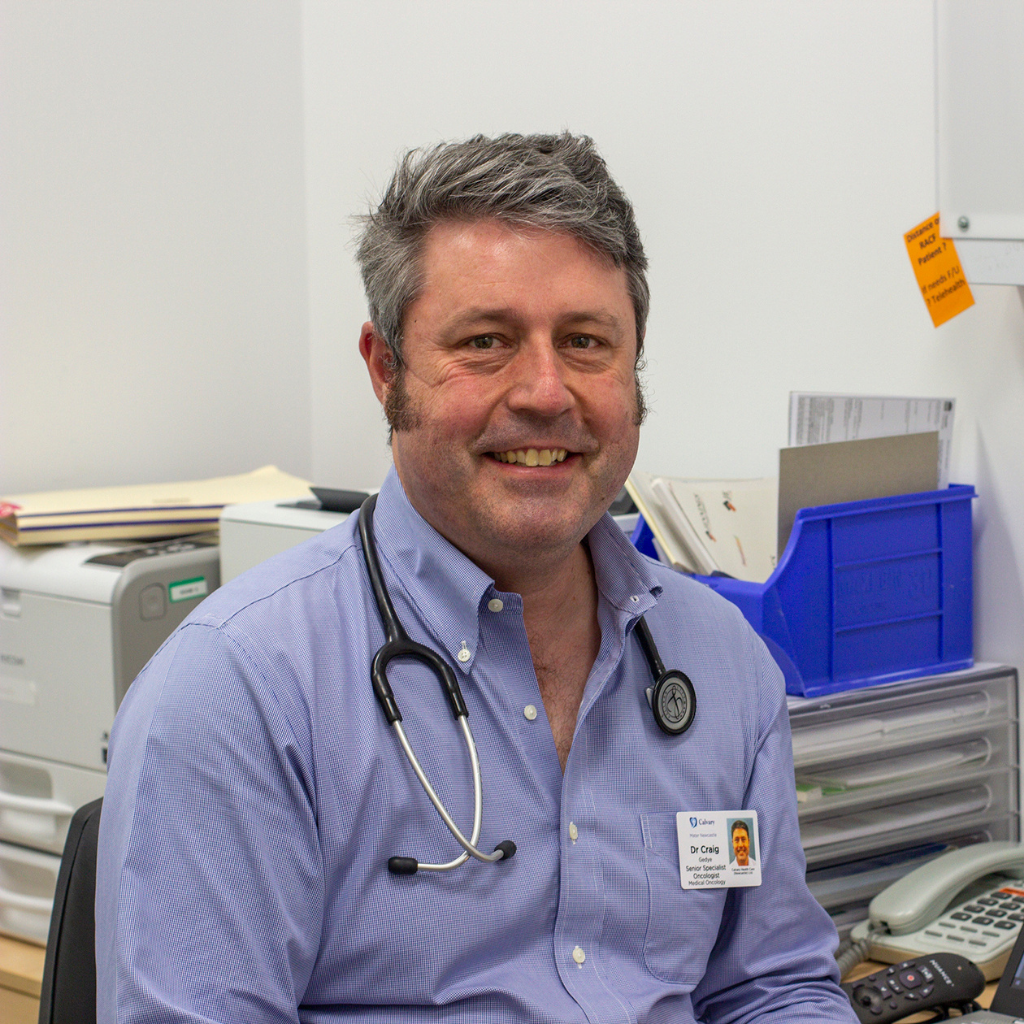
Craig Gedye
CHAIR
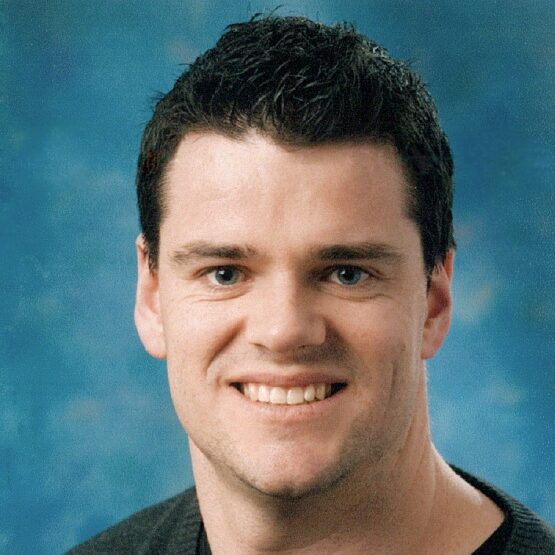
David Pook
DEPUTY CHAIR
Despite facing numerous challenges throughout the year, the Renal Cell Cancer Subcommittee managed to achieve remarkable productivity. Below, we provide a summary of our activities during this period.
Trial Updates
KEYPAD trial (ANZUP 1601)
This trial is now closed to recruitment. Data cleaning and analysis are currently underway, with the intent of submitting an abstract for the European Society for Medical Oncology (ESMO) 2023 conference.
UNICAB (ANZUP Non-clear cell post Immunotherapy CABozantinib)
This trial has also closed recruitment, with 35 patients enrolled. Data analysis is underway.
RAMPART
This study opened during the year and still recruiting. encouraged to promote recruitment.
UNISoN (ANZUP 1602)
This trial has submitted a draft manuscript to BJUI.
ANZadapt
ANZadapt is a unique collaboration between two research groups from different continents: the Australian and New Zealand Urogenital and Prostate Cancer Trials Group (ANZUP) and the Leiden University Medical Center (LUMC) in the Netherlands. The teams were brought together and supported by the Anticancer Fund (ACF), a non-profit research organisation committed to improving outcomes for cancer patients.
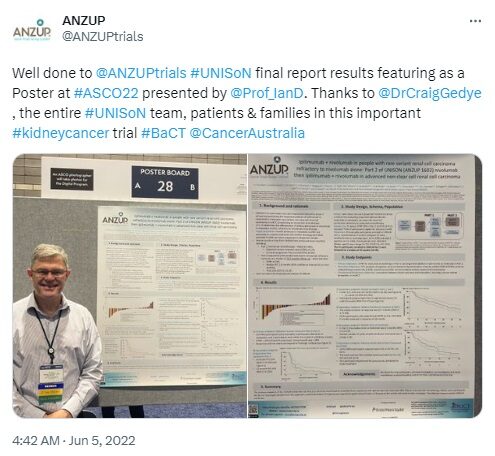
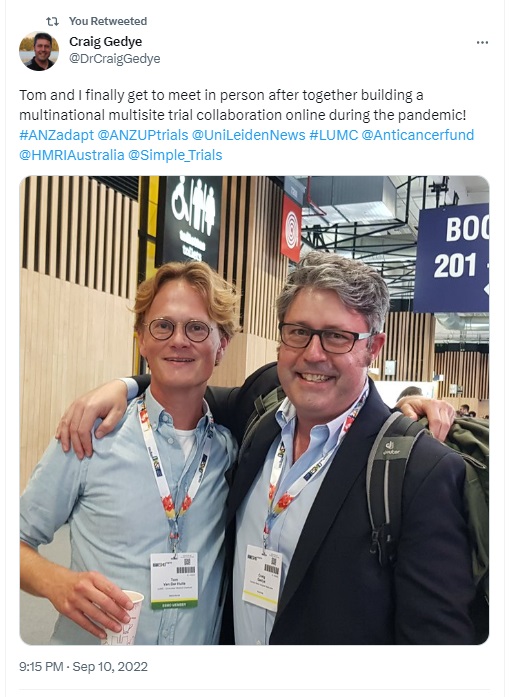
Below the Belt Funded Projects
68Ga-PSMA PET as a potential Imaging biomarker post tyrosine kinase inhibition of metastatic clear cell Renal cell Cancer (PIRC) – a pilot study
The recruitment for this study has been difficult. At present, only patients receiving second-line TKI therapy are eligible to participate, and the study is only open at two sites: St. Vincent’s Sydney and ONJWC Melbourne. To improve recruitment, the possibility of opening the study at other high-volume sites and/or changing eligibility to include first-line TKI patients is being considered. Additionally, members are encouraged to refer eligible patients from their sites.
68Ga-PSMA PET as a potential Imaging biomarker for immune checkpoint immunotherapy
This project is currently in the development phase with an in‐house grant application being prepared. The aim is to open the study in the second quarter of 2023. This study will also include baseline FDG scan as well as PET scan.
Horizons Scanning Meeting
Functional imaging in RCC/Theranostics in RCC
The development of a prospective PSMA-PET study will proceed as planned. Funding for this study has been secured from Below the Belt Research Fund allowing up to 20 patients at RBH. Furthermore, a local site grant will be submitted to extend the study to other sites.
Surveillance of advanced and early RCC
A post-operative surveillance schedule is being developed. The schedule will be modelled on the testicular surveillance guidelines and will be intended for use by clinicians, patients and their families.
Personalised escalation and de‐escalation of systemic therapy
An approach to the new Federal Health Minister was proposed to discuss the potential for a new funding model for clinical trials. The proposal would be that savings from improved use of PBS listed drugs could be used to fund new trials.
Australian kidney cancer guidelines
There had been considerable interest in developing guidelines for RCC, including interest from potential funders to support this work. Work has commenced and will continue into 2023.
Trials in Development
Peri-operative TKI +/- IO in ccRCC
This trial examines whether it can increase surgical resectability. There is ongoing discussion regarding the possibility of adding adjuvant pembrolizumab and inclusion of T3/T4 patients.
Ideas Generation Workshops
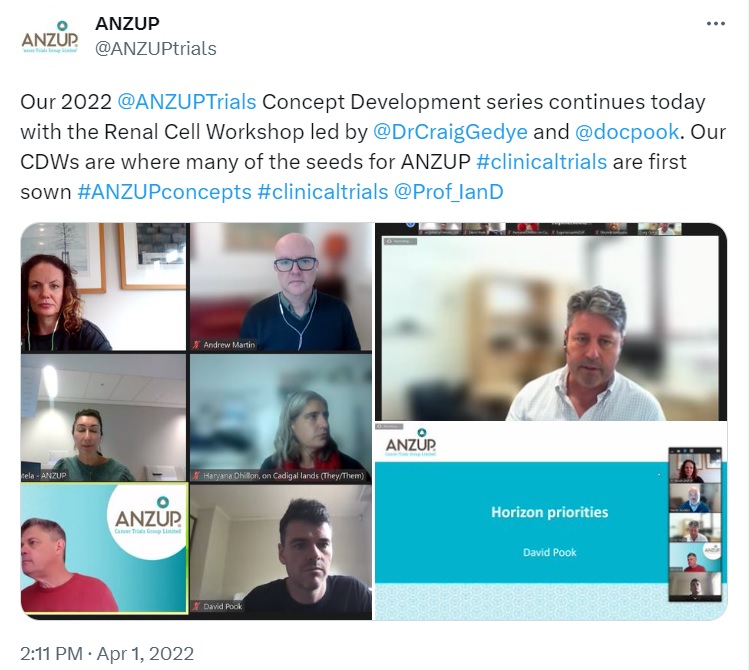
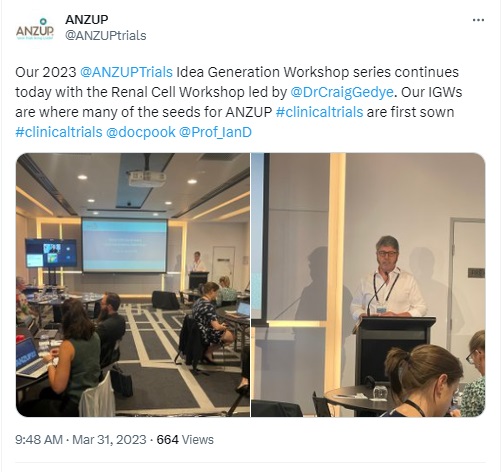
We had 2 Ideas Generation Workshops during the year, one held on 1 April 2022, and the other on Friday 31 March at Pullman Sydney Airport. The purpose of the IGWs is to aid and encourage members who participate actively in our teleconferences and research endeavours and who wish to propose an idea for discussion. If the idea is deemed feasible, the IGWs will help in refining it and transforming it into a potential grant application. In total, we had 42 attendees with 6 concepts presented.
We are eagerly anticipating the expansion of clinical trials for renal cell cancer and are optimistic about the Renal Cell Cancer Subcommittee’s prospects for a fruitful year ahead. We extend our gratitude to all the RCC subcommittee members, clinical sites, collaborators, and, most importantly, trial participants. We look forward to continuing to work towards the goals of preventing, treating, and improving outcomes for renal cell carcinoma patients.
